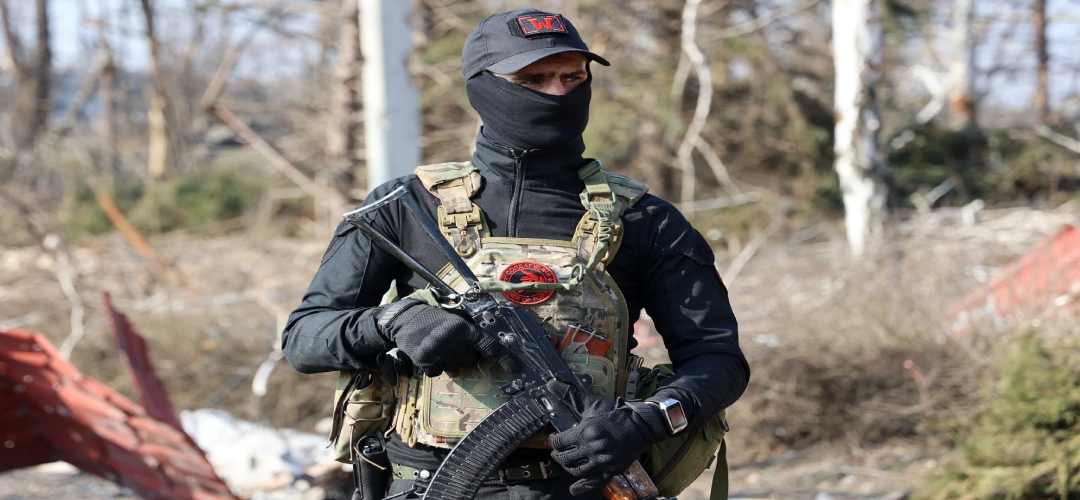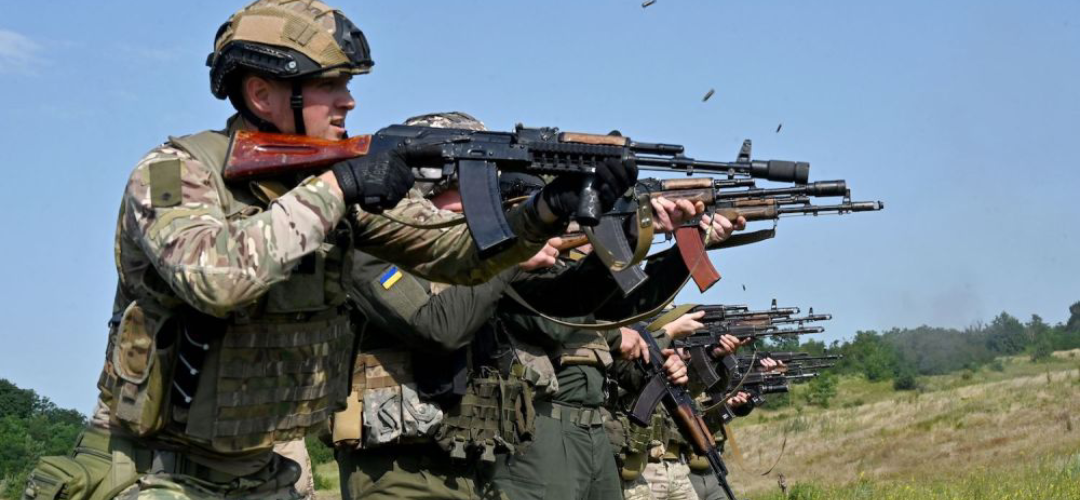Wagner 2.0: What to Expect?
February 24, 2024 | Expert Insights

Last year in December, the Le Monde ran a piece titled "Africa Corps': Russia's Sahel presence rebranded.” While the name conjured images of the dreaded Afrika Korps of Nazi Germany under its inimitable general Rommel, the Desert Fox, it also reinforced Russian commitment to the African continent, despite all other travails that Moscow is facing.
The reference to 'Africa Corps' was first made on Telegram in November by two Russian military bloggers who claimed that the creation of this new organisation was done in the wake of the visit of Russian Deputy Defence Minister Yevkurov’s visit to Libya, where he discussed with the Libyan warlord, Khalifa Haftar.
After the death of Mr Yevgeny Prigozhin in a private jet crash last year in August, the Wagner Group has generally confined its operations to the African continent, providing military advisers and trainers to the Sahel region. It may be remembered that the French, the UN, and other Western militaries have gradually been eased out of this area.
Background
The Wagner Group has been operating in the African continent since 2017. The group has had a significant effect in the region, from deploying paramilitary forces to allegedly orchestrating online disinformation campaigns.
After the fading away of the Wagner Group as a military entity, Moscow quickly reassured Middle Eastern and African states that Russian presence in the regions would continue. However, the group’s activities may witness a shift as it now comes directly under the Russian Ministry of Defence as opposed to earlier when it was a private military contractor (PMC).
The defence ministry has rebranded the group as the Africa Corps and continues to command around 5,000 operatives in Africa. While the Russian mercenaries in Africa always answered to the Kremlin, it is now officially so. This takes away the deniability factor from the operations of this group as it implies a direct Kremlin involvement.
The group’s modus operandi included carefully planned social media campaigns to unsettle Western and French influence in the region and counter Western propaganda with its own brand of influence operations. It also included a financial network based on mining lucrative natural resources, ranging from gold mines to diamond mines. The Russian government also financially supported the group’s activities.
The newly branded paramilitary group Africa Corps has been taking over Wagner operations in Mali, Libya, and, to a lesser extent, the Central African Republic.

Analysis
Russia is likely to ensure that its paramilitary presence continues, given that it has important regional geopolitical agendas. However, it may focus on countries like Libya and Mali, where it has a strong interest in drawing revenue from oil fields, accessing naval ports, and influencing the making of rulers.
In areas like the Central African Republic that were mainly of personal commercial interest to the prior leadership of the Wagner Group, it remains to be seen whether Russia looks to benefit from Rogozin’s activities and networks there or reduce involvement.
The Russian defence ministry will certainly look to ensure loyalty, and this increased state control may affect the group's functioning, possibly making it less efficient, flexible, and more bureaucratic.
Africa has always been an attractive place for private military contractors with its vast natural resources for exploitation and its instability, which leaves ample room for them to interfere and operate. However, Russia is now all the more keen to sustain influence in Africa in light of its global isolation and weakened position since its invasion of Ukraine. Furthermore, many African countries are increasingly considering alternatives to traditional Western allies.
Therefore, in addition to the focus shifting to the Sahel, the transition to Africa Corps may also witness a new phase where Russia looks to threaten Western interests there to gain leverage over the West. For instance, in Niger, Russia is trying to gain concessions that would cut off French access to its uranium mines. France is highly dependent on nuclear power, which accounts for nearly two-thirds of its energy. It imports around a fifth of its uranium from Niger. If Russia gains control of uranium mines in West Africa, it could win leverage over Europe.
Rather than fragmenting, falling apart, or leaving a power vacuum, Africa Corps is likely to develop into Wagner 2.0: Russia is not going to give up the intricate political, economic, and security network that Prigozhin had built without trying to continue it to achieve its geopolitical and economic goals.
However, it may be subject to competing claims as various influential Russians within and outside the government try to stake a claim on Wagner's assets and extensive African network.
Assessment
- With the rebranded Wagner group now directly under the Russian government, it can no longer operate in the shroud of mystery that it did as a private military company. However, even while this may affect the way it functions, it is likely to continue in the same vein, even if it is more overt than before.
- Russia is likely to use the paramilitary group to pursue its renewed interest in the region, which has strengthened since its global isolation as it looks to regain political and economic influence and leverage over the West.
- With Western military influence in the region on the wane, one can visualise a greater outreach by Moscow in Africa.








Comments